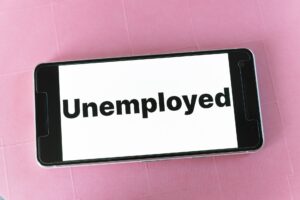Putting money aside for future use, i.e., saving, is foundational to having a positive personal finance experience. But to better use savings to attain your desired financial lifestyle, you have to be intentional and avoid these five saving mistakes.
Failing to begin saving (as soon as today)
No matter the size of your paycheck, a portion of your income is yours to keep, even if that portion is KES 100 per month. We work too damn hard for our money to let all of it get sucked into bills paid to other people and have nothing left to ourselves.
Start saving now. Starting now is so much better than later. Waiting too long to start saving, whether for a down payment on a home, retirement or a vacation, costs you money in the form of compound interest. The longer you wait to start saving, the less time compound interest has to work for you.
Failing to pay yourself first
One of the most important rules of personal finance is a very simple one; pay yourself first. I challenge you to put this to the test and see for yourself. Paying yourself first means simply setting aside a portion of your income to save before paying your bills, buying groceries, or doing anything else. Place the funds in your emergency or sinking funds. The first bill you should pay each month is to yourself. This habit, if developed early on, can help you amass enormous wealth.
Saving without a goal
It is more difficult to save money if you do not have a goal in mind. After all, if the money isn’t being used for something specific, what’s the point of saving it?
Create a timeline and a target amount for your savings goals, such as “retirement,” “vacation,” or “down payment on a home.” For example, how much money do you want to set aside for a down payment? When do you want to start looking for a house? Having a clear goal for each of your savings accounts will make you less likely to dip into them in times of need and more likely to take your savings seriously.
Keeping your savings in one account
Having your savings in one account will make it very easy to dip into them, especially for purposes that the savings were not intended for. Ideally, your major financial goals should each have their own individual savings accounts. When starting out, there are three savings accounts you should work towards. An Emergency Funds, a Sinking Fund, and a Retirement Fund (this is both a savings and investment).
What’s the difference between the three and why does each matter?
An Emergency Fund
An emergency fund is an account in which you have saved a minimum of six months’ worth of living expenses to cover unexpected expenses such as a loss of income or a sudden illness that may affect your ability to work. It protects you and your assets from being liquidated in the event of an emergency. Money Market Funds are ideal for this purpose because you can withdraw your money within 2-4 working days.
A Sinking Fund
A Sinking Fund, separate from your Emergency Fund, is a savings account where you save for non-monthly expenses such as school fees, insurance, travel, car expenses, upgrades, home improvements, Christmas and holidays, and so on. This is ideally the account that allows you to plan for and afford your lifestyle. You can have multiple sinking funds, depending on the purpose you want to give them. Money Market Funds also work well for sinking funds.
Retirement Fund
Because you earn annual compound interest on your retirement savings, a Retirement Fund is both a savings and an investment account. The return varies between 5-10% per year, depending on the firm and the economic conditions. In Kenya, you can set a Personal Pension Fund with as little as KES 1,000, regardless of whether you are employed. Personal Pension Plans are available at the majority of insurance and investment firms.
You can easily keep track of your savings account and personal finance goals with our done-for-you Legacy Budget Tracker.
Over-saving
Yes, you read it right. It means exactly that, saving too much. And I think it is one money mistake not openly addressed. Don’t get me wrong, over-saving is not as bad as overspending but if you are keen on attaining your desired financial lifestyle, it’s good to take all possible care and have a proper and healthy balance.
The urge to over-save is especially great when one is enthusiastically their personal finance journey and can lead to the delusion that it is better to live on borrowed money while saving most of your income. While some financial gurus have overtime managed to leverage debt well, most of us are not very versed with how to maneuver debt well, so this tends to lead most people in a lot of unnecessary debt. This is why we mentioned above that every saving account should have a goal because this way, you will be able to strike a healthy balance on where your income goes, instead of taking pointless consumer loans. The recommended balance is the 50-30-20 rule, where 50% of your income goes to mandatory bills and expenses, 30% to your wants and leisure, and 20% to your savings and investments.








One Response
Very informative,to say the least